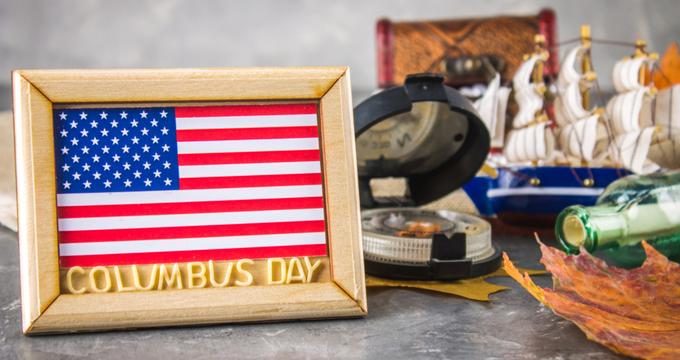Columbus Day is observed to every second Monday of October. It used to be celebrated every October 12, but has since 1971 been changed. Columbus Day is a holiday that’s observed in the United States. It’s meant to commemorate the time when Christopher Columbus landed in the Americas way back in 1492. The holiday was actually being celebrated in various other cities and states, albeit unofficially, for as early as the 18th century. It only became an official federal holiday back in 1937.
-
Why do people celebrate Columbus Day?
- Most people who celebrate Columbus Day see it as a way to remember the achievements of Christopher Columbus and to celebrate Italian-American heritage.
- Others, however, disagree due to the many controversies surrounding Christopher Columbus, leading to proposed changes to the holiday as early as the 1970s.
-
Who was Christopher Columbus?
- Christopher Columbus was an Italian explorer who began his journeys in 1492.
- He was headed to Asia with the blessing of King Ferdinand and Queen Isabella.
- His plan was to take a sea route to China, India, and Asia’s spice islands, but he ended up in the Bahamas, becoming the first European to set foot in the Americas since the Viking colonies of the 10th century.
-
What is Christopher Columbus' legacy?
- Many people know Christopher Columbus as the man who proved that the Earth was round, but in reality, many Europeans of that time already understood this.
- He did not reach Asia but instead stumbled across a continent Europeans already knew of.
- Columbus established Spain’s first colony in the Americas on Hispaniola with 39 men.
-
When was Columbus Day first celebrated in the U.S.?
- The first Columbus Day celebration was in 1792, when the New York Columbian Order hosted an event for the 300th anniversary of Columbus’ landing.
- In 1892, President Benjamin Harrison issued a proclamation encouraging Americans to observe the 400th anniversary of Columbus' landing.
- In 1937, President Franklin D. Roosevelt declared Columbus Day a national holiday, largely due to lobbying by the Knights of Columbus.
-
What are some alternatives to Columbus Day?
- As early as the 19th century, anti-immigrant groups in the U.S. opposed the holiday due to its connection with Catholicism.
- In recent decades, Native American groups have opposed Columbus Day, arguing that it represents the colonization of the Americas and the beginning of the transatlantic slave trade.
- Columbus' arrival brought disease and war that led to the deaths of millions of indigenous people.
-
What is Indigenous Peoples Day?
- Many Latin American societies celebrate Día de la Raza (Day of the Race) to honor Hispanic culture.
- In 2002, some countries renamed it Día de la Resistencia Indígena (Day of Indigenous Resistance) to recognize the struggles of Native Americans.
- Several U.S. states, including Hawaii, Alaska, South Dakota, and Oregon, as well as cities like Los Angeles, Phoenix, and Denver, have officially replaced Columbus Day with Indigenous Peoples Day.
-
How is Columbus Day celebrated today?
- Many parts of the U.S. still celebrate Columbus Day, but today, it is often observed to honor Italian-American heritage.
- Parades feature colorful costumes, music, Italian food, and traditional dance events.
- Some cities also hold educational events about Native American culture.
- The Catholic aspect of the holiday remains, with special masses held in some churches.
-
What can visitors expect during Columbus Day celebrations?
- Visitors can enjoy parades, festivals, music, food, and an overall lively atmosphere.
- It’s a unique experience for both locals and tourists looking to witness cultural festivities.
Plan Your Trip


